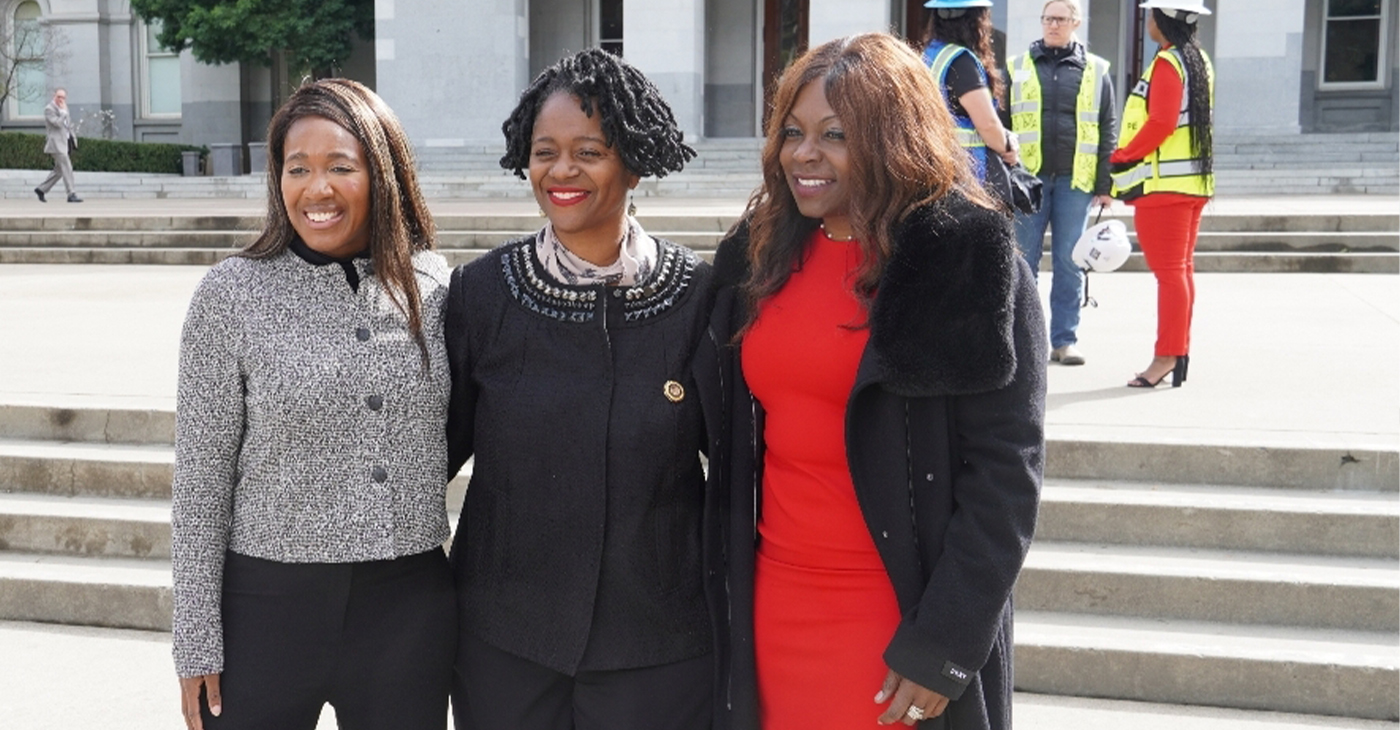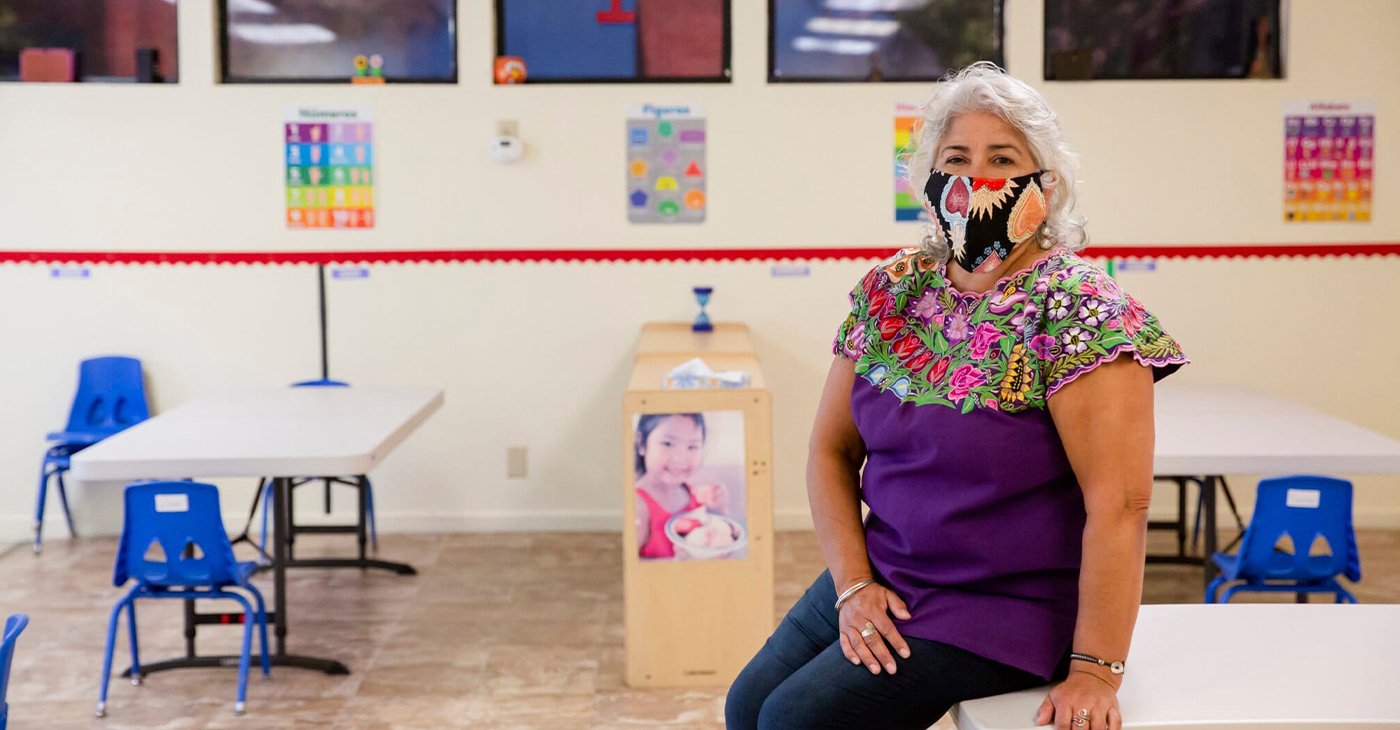Government
OP-ED: This Government Shutdown is Destroying America
HOUSTON FORWARD TIMES — As a result of this catastrophic and life-altering shutdown, so many people who have relied on the government for their livelihood have been severely impacted in a major way.
Imagine having to choose between paying your mortgage and picking up the much-needed prescription you need for your health crisis, because the job you report to and the federal resources you have relied on to live day to day are no longer available to you because of things beyond your control.
Choices like that, and many others, have been exactly what the approximately 800,000 federal workers, the roughly 4 million contractors and the countless number of low-income families who rely on the federal government, have had to deal with since the beginning of what has become the longest government shutdown in U.S. history. This has been the third shutdown of the federal government since President Donald J. Trump took the oath of office.
As a result of this catastrophic and life-altering shutdown, so many people who have relied on the government for their livelihood have been severely impacted in a major way.
People have had their Medicare and Medicaid disrupted. The stock market has been volatile. Federal workers have gone without paychecks and are in danger of losing everything they have worked so hard to attain to live the American dream. Safety has also become an issue.
Our food is not safe. As a result of the shutdown, the Food and Drug Administration (FDA) immediately announced that most they had stopped most of their routine food safety inspections because staff had been working without pay. These inspections handled by the unpaid workers included things like doing safety inspections on foods that had been imported from overseas, dangerous recalls, foodborne illness outbreaks, and much more.
Our drugs are not safe. The FDA also stated that because of the shutdown, they don’t have the ability to review new drugs that could be beneficial in helping people get better until the government reopens.
Even our airports are not safe.
Just a few weeks ago, a passenger on Delta Air Lines who was traveling from Hartsfield-Jackson International Airport in Atlanta to Tokyo, Japan, informed authorities that he had inadvertently carried his loaded firearm through airport security and onto the plane. The Transportation Security Administration (TSA) confirmed this and there are more concerns that unpaid TSA workers may not have the same level of focus due to the non-pay and many are not even reporting to work. Just this past week, the TSA checkpoint in Terminal B at George Bush Intercontinental Airport in Houston was closed due to TSA agents calling in sick to protest the shutdown. Things are getting more and more out of hand.
On top of the potential safety issues, the financial strain this shutdown is putting on the American people, especially here in Texas is devastating.
This government shutdown will impact more than 3.5 million Texans who receive Supplemental Nutrition Assistance Program (SNAP) benefits come February 2019.
SNAP offers nutrition assistance to millions of eligible, low-income individuals and families and provides economic benefits to communities. SNAP is the largest program in the domestic hunger safety net. According to the Texas Health and Human Services Commission, there are currently 3,580,375 people receiving SNAP benefits as of December 2018.
Texas State Senator Borris L. Miles states that while the shutdown is already hurting Texans all across the state, he believes it’s about to hit the poorest in our communities the hardest because after February 2019, SNAP beneficiaries will no longer receive the necessary funds to purchase food.
“This is unacceptable,” said Miles. “I am calling on the Texas leadership to make emergency preparations to help Texans on food stamps and other programs impacted by the shutdown. I am prepared to roll up my sleeves and work with my colleagues to ensure we fund these programs adequately so that no Texan should go hungry.”
Senator Miles also sent a joint letter to President Donald Trump, House Speaker Nancy Pelosi and Senate Majority Leader Mitch McConnell to make it clear that Texas is prepared to help those impacted in our state and expects to be reimbursed when the federal government reopens.
“This is not a Democratic or Republican issue, or a rural, urban or suburban issue; it’s a poor people issue,” said Miles. “We need to do the right thing, help the poorest in our communities and minimize the impact of this shutdown.”
It has been unconscionable to witness the very people who have been elected to represent the American people, turn around and allow personal politics and political ideologies to severely hurt the American people after being voted to represent them as advocates, not enemies.
The longer this government shutdown continues, the more the American people will suffer and America as a whole will be at risk.
The American people must demand more from the elected officials who have been voted in to represent them and let them know that things have gone too far and must stop.
To hold the country hostage because President Trump can’t get his beloved wall across the border, when he stated from the onset that he would make the country of Mexico pay for it, is unfair and disingenuous. Subsequently, any elected official who cosigns with this mode of thinking and action is equally as irresponsible.
It is time for all elected officials to stop playing chicken with the American people’s livelihoods and stop playing the role of elected enemies to the people they are elected to serve.
This article originally appeared in the Houston Forward Times.
Activism
Oakland Post: Week of March 28 – April 1, 2025
The printed Weekly Edition of the Oakland Post: Week of March 28 – April 1, 2025

To enlarge your view of this issue, use the slider, magnifying glass icon or full page icon in the lower right corner of the browser window.
Activism
Sen. Lola Smallwood-Cuevas Honors California Women in Construction with State Proclamation, Policy Ideas
“Women play an important role in building our communities, yet they remain vastly underrepresented in the construction industry,” Smallwood-Cuevas stated. “This resolution not only recognizes their incredible contributions but also the need to break barriers — like gender discrimination.

By Antonio Ray Harvey, California Black Media
To honor Women in Construction Week, Sen. Lola Smallwood-Cuevas (D-Los Angeles), a member of the California Legislative Black Caucus (CLBC), introduced Senate Concurrent Resolution (SCR) 30 in the State Legislature on March 6. This resolution pays tribute to women and highlights their contributions to the building industry.
The measure designates March 2, 2025, to March 8, 2025, as Women in Construction Week in California. It passed 34-0 on the Senate floor.
“Women play an important role in building our communities, yet they remain vastly underrepresented in the construction industry,” Smallwood-Cuevas stated. “This resolution not only recognizes their incredible contributions but also the need to break barriers — like gender discrimination.
Authored by Assemblymember Liz Ortega (D-San Leandro), another bill, Assembly Concurrent Resolution (ACR) 28, also recognized women in the construction industry.
The resolution advanced out of the Assembly Committee on Rules with a 10-0 vote.
The weeklong event coincides with the National Association of Women In Construction (NAWIC) celebration that started in 1998 and has grown and expanded every year since.
The same week in front of the State Capitol, Smallwood, Lt. Gov. Eleni Kounalakis, Assemblymember Josh Hoover (R-Folsom), and Assemblymember Maggie Krell (D-Sacramento), attended a brunch organized by a local chapter of NAWIC.
Two of the guest speakers were Dr. Giovanna Brasfield, CEO of Los Angeles-based Brasfield and Associates, and Jennifer Todd, President and Founder of LMS General Contractors.
Todd is the youngest Black woman to receive a California’s Contractors State License Board (A) General Engineering license. An advocate for women of different backgrounds, Todd she said she has been a woman in construction for the last 16 years despite going through some trying times.
A graduate of Arizona State University’s’ Sandra Day O’Connor College of Law, in 2009 Todd created an apprenticeship training program, A Greener Tomorrow, designed toward the advancement of unemployed and underemployed people of color.
“I always say, ‘I love an industry that doesn’t love me back,’” Todd said. “Being young, female and minority, I am often in spaces where people don’t look like me, they don’t reflect my values, they don’t reflect my experiences, and I so persevere in spite of it all.”
According to the U.S. Bureau of Labor Statistics, only 11.2% of the construction workforce across the country are female. Overall, 87.3% of the female construction workers are White, 35.1% are Latinas, 2.1% are Asians, and 6.5% are Black women, the report reveals.
The National Association of Home Builders reported that as of 2022, the states with the largest number of women working in construction were Texas (137,000), California (135,000) and Florida (119,000). The three states alone represent 30% of all women employed in the industry.
Sen. Susan Rubio (D-Baldwin Park) and the California Legislative Women’s Caucus supported Smallwood-Cuevas’ SCR 30 and requested that more energy be poured into bringing awareness to the severe gender gap in the construction field.
“The construction trade are a proven path to a solid career. and we have an ongoing shortage, and this is a time for us to do better breaking down the barriers to help the people get into this sector,” Rubio said.
Bay Area
Five Years After COVID-19 Began, a Struggling Child Care Workforce Faces New Threats
Five years ago, as COVID-19 lockdowns and school closures began, most early educators continued to work in person, risking their own health and that of their families. “Early educators were called essential, but they weren’t provided with the personal protective equipment they needed to stay safe,” said CSCCE Executive Director Lea Austin. “There were no special shopping hours or ways for them to access safety materials in those early and scary months of the pandemic, leaving them to compete with other shoppers. One state even advised them to wear trash bags if they couldn’t find PPE.”

UC Berkeley News
In the first eight months of the COVID-19 pandemic alone, 166,000 childcare jobs were lost across the nation. Significant recovery didn’t begin until the advent of American Rescue Plan Act (ARPA) Child Care Stabilization funds in April 2021.
Today, child care employment is back to slightly above pre-pandemic levels, but job growth has remained sluggish at 1.4% since ARPA funding allocations ended in October 2023, according to analysis by the Center for the Study of Child Care Employment (CSCCE) at UC Berkeley. In the last six months, childcare employment has hovered around 1.1 million.
Yet more than two million American parents report job changes due to problems accessing child care. Why does the childcare sector continue to face a workforce crisis that has predated the pandemic? Inadequate compensation drives high turnover rates and workforce shortages that predate the pandemic. Early childhood educators are skilled professionals; many have more than 15 years of experience and a college degree, but their compensation does not reflect their expertise. The national median hourly wage is $13.07, and only a small proportion of early educators receive benefits.
And now a new round of challenges is about to hit childcare. The low wages paid in early care and education result in 43% of early educator families depending on at least one public support program, such as Medicaid or food stamps, both of which are threatened by potential federal funding cuts. Job numbers will likely fall as many early childhood educators need to find jobs with healthcare benefits or better pay.
In addition, one in five child care workers are immigrants, and executive orders driving deportation and ICE raids will further devastate the entire early care and education system. These stresses are part of the historical lack of respect the workforce faces, despite all they contribute to children, families, and the economy.
Five years ago, as COVID-19 lockdowns and school closures began, most early educators continued to work in person, risking their own health and that of their families. “Early educators were called essential, but they weren’t provided with the personal protective equipment they needed to stay safe,” said CSCCE Executive Director Lea Austin. “There were no special shopping hours or ways for them to access safety materials in those early and scary months of the pandemic, leaving them to compete with other shoppers. One state even advised them to wear trash bags if they couldn’t find PPE.”
The economic impact was equally dire. Even as many providers tried to remain open to ensure their financial security, the combination of higher costs to meet safety protocols and lower revenue from fewer children enrolled led to job losses, increased debt, and program closures.
Eventually, the federal government responded with historic short-term investments through ARPA, which stabilized childcare programs. These funds provided money to increase pay or provide financial relief to early educators to improve their income and well-being. The childcare sector began to slowly recover. Larger job gains were made in 2022 and 2023, and as of November 2023, national job numbers had slightly surpassed pre-pandemic levels, though state and metro areas continued to fluctuate.
Many states have continued to support the workforce after ARPA funding expired in late 2024. In Maine, a salary supplement initiative has provided monthly stipends of $240-$540 to educators working in licensed home- or center-based care, based on education and experience, making it one of the nation’s leaders in its support of early educators. Early educators say the program has enabled them to raise wages, which has improved staff retention. Yet now, Governor Janet Mills is considering cutting the stipend program in half.
“History shows that once an emergency is perceived to have passed, public funding that supports the early care and education workforce is pulled,” says Austin. “You can’t build a stable childcare workforce and system without consistent public investment and respect for all that early educators contribute.”
The Center for the Study of Childcare Employment is the source of this story.
-

 #NNPA BlackPress4 weeks ago
#NNPA BlackPress4 weeks agoTarget Takes a Hit: $12.4 Billion Wiped Out as Boycotts Grow
-

 Activism4 weeks ago
Activism4 weeks agoUndocumented Workers Are Struggling to Feed Themselves. Slashed Budgets and New Immigration Policies Bring Fresh Challenges
-

 #NNPA BlackPress4 weeks ago
#NNPA BlackPress4 weeks agoBREAKING Groundbreaking Singer Angie Stone Dies in Car Accident at 63
-

 #NNPA BlackPress4 weeks ago
#NNPA BlackPress4 weeks agoNAACP Legend and Freedom Fighter Hazel Dukes Passes
-

 Arts and Culture4 weeks ago
Arts and Culture4 weeks agoBeverly Lorraine Greene: A Pioneering Architect and Symbol of Possibility and Progress
-

 #NNPA BlackPress4 weeks ago
#NNPA BlackPress4 weeks agoTrump Kicks the Ukrainian President Out of the White House
-

 #NNPA BlackPress4 weeks ago
#NNPA BlackPress4 weeks agoApple Shareholders Reject Effort to Dismantle DEI Initiatives, Approve $500 Billion U.S. Investment Plan
-

 Activism3 weeks ago
Activism3 weeks agoOakland Post: Week of March 5 – 11, 2025























































